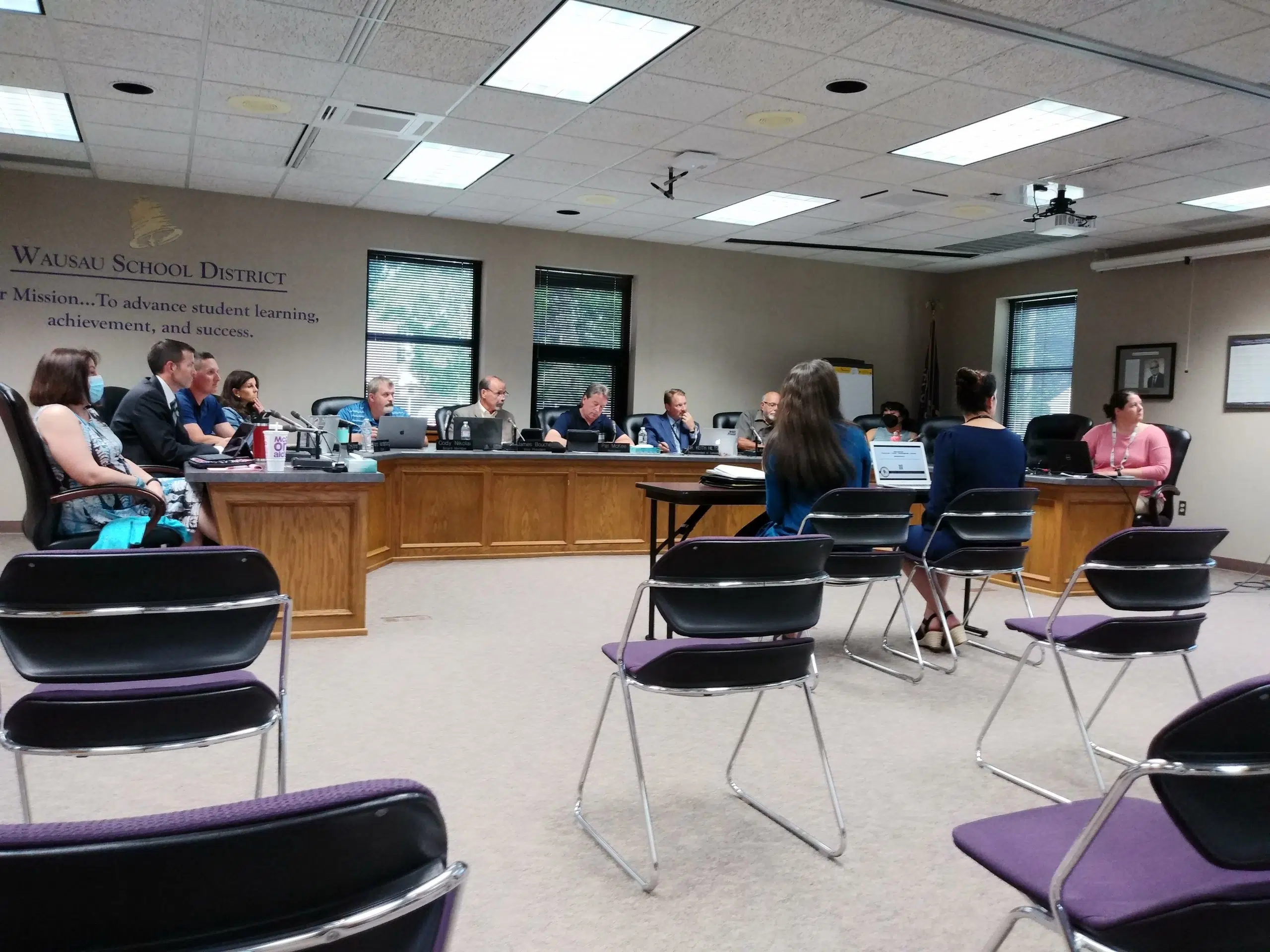
Wausau School Board. MWC file photo by Mike Leischner
WAUSAU, WI (WSAU) — The Wausau School Board voted 7-2 Monday to implement a new policy regarding board members using public comment to address their colleagues.
The new policy will acknowledge that the practice can be seen as a violation of open meetings laws, but will not ban members from using the time to give their thoughts completely. It will make it clear that anyone doing so is only speaking for themselves and will not be protected from any consequences that may be brought on.
“Board members participating as speakers during a period of public comment may violate Wisconsin’s open meetings law,” read Board Member Lance Trollop from the new policy. “A board member who participates as a speaker during a period of public comment does so at their own peril and without the endorsement of the board’s members or the board as a whole. In addition, any statements made by a board member who participates as a speaker during a period of public comment do not necessarily represent the position of the board’s members, or the board as a whole and shall in no event be binding on the board.”
Trollop, who works as a lawyer during the day, says the language is meant to “insulate” the other board members from any potential blowback should someone cross a line during public comment.
Board Member Jane Rusch, who has previously used public input time to address her colleagues, says she does so because she’s found it difficult to get items on the agenda. “This is very political. The majority of this board does not want to discuss COVID [19]. I have asked every week to put COVID on the agenda just so we can have an inkling of what’s going on in the district, what’s going on in the community. It never makes it on the agenda. My only way to talk to my fellow board members and let them know how I feel [is through] public comment.
“I am not asking to talk about something frivolous,” added Rusch.
Ka Lo addressed the situation by stating that Rusch and Board President Pat McKee do not have a good working relationship. Both Rusch and McKee agreed that’s the case, and at one point a verbal rift between the two broke out regarding Rusch’s claims that McKee has “verbally attacked” her during meetings. McKee denied those claims.
“These interpersonal relationships have spilled over into trying to control each other. It’s crazy, and you are really putting us in a bad spot here. To have us make these rule changes based on interpersonal relationships that have nothing to do with the school board as a whole,” said Lo.
Monday’s meeting also featured input from Attorney Kirk Strang, who said in his interpretation it’s not right for anyone in such a position to step aside from their role as an elected official and step up to the podium for public comment. “One is either a member of a governmental body or one is a citizen. The League of Municipalities has issued an opinion on this subject, and they cautioned against having board members, city council members, or county board members from coming before the body as part of public comment for fear that will violate the open meeting law.
“The public needs to be able to look at the board’s agenda and have a fair understanding of what the board is going to discuss or the board is going to take action on,” said Strang.
Despite that, the board still voted in favor of adding the policy to its manual. Lo and Rusch were the lone no votes.
The Wausau School District released a statement shortly before Monday’s meeting through Communication and Marketing Coordinator Diana White emphasizing that the discussion does not come from a desire to censor any one of the board members and instead was brought forward by a community member who questioned whether the practice constitutes a violation of open meetings laws.
“It’s important to note that this conversation has nothing to do with board members’ opinions on any particular issue, but rather a commitment to open government. Furthermore, the Wausau School District supports and respects everyone’s First Amendment rights and changes to this proposed policy in no way, restricts those rights. This proposed change in policy also further shifts the responsibility for public comments, made by a Board member, to the individual speaker, thereby protecting the District from any liability related to those public comments,” The release adds that the board continually reviews policies and practices and will periodically make adjustments to ensure compliance with Wisconsin’s Open Meetings Law at all times.





Comments